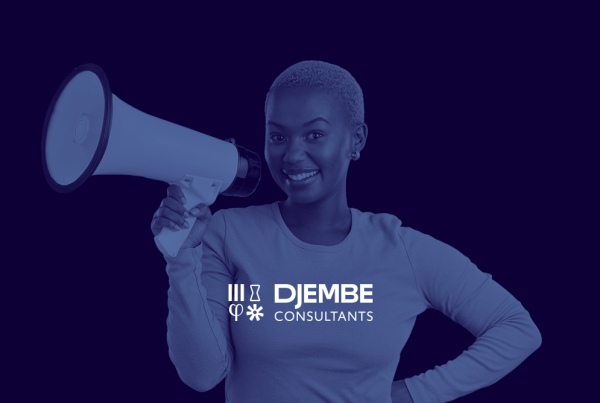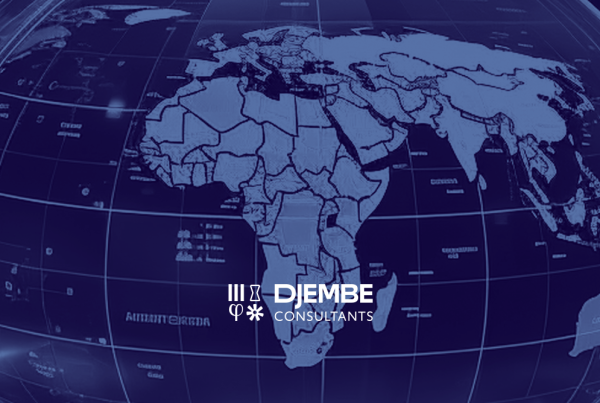Many livelihoods were severely affected overnight when movement control orders caused by COVID-19 struck Africa’s vast informal sector. What needs to happen to help this sector of entrepreneurs to get back on their feet, stabilize and grow?
In Africa, the impact of the pandemic has been felt in varying degrees by all margins of society, but the hardest hit has been women, youth, and the informal markets – hundreds of millions of people who earn a living buying and selling goods, and whose entire markets and supply chains closed overnight with little to no state support. Even within the formal sector, the die was cast for women to be more heavily impacted by the pandemic than men as most found themselves with the extra responsibility of full-time domestic duties and childcare alongside their full-time jobs.
Pauline Koelbl, the Founder of the investment platform for female-led entrepreneurs across sub-Saharan Africa, ShEquity, highlights that even before COVID-19, the female-male funding gap stood at $42 billion because of systemic bias that favors the continent’s male entrepreneurs who are perceived to be a lower risk category than women. She shares in Djembe’s newly released Building a Resilient Innovative Africa report that “from an investment perspective, although policymakers are trying to drive inclusion for women and youth, there is more talk than action. Women still struggle to access early-stage funding”.
In fact, our report might have picked up on this ‘systemic bias’ given that of the 1,000 African entrepreneurs we surveyed, 73% of them were male. What is causing these disparities?
Gender responsive budgeting
Regional Director of UN Women, Oulimata Sarr, believes that it comes down to budgeting. “Governments must first seek to implement gender-responsive budgeting (GRB) so that they can keep track of the spend on women and ensure that funds are being channeled towards gender gap priorities including health, education, and economic empowerment. Even something as straightforward as ensuring that schools have separate restrooms for girls allows them to remain at school.”
GRB should be based on in-depth analysis that identifies effective interventions for implementing policies and laws that advance women’s rights. It provides tools to assess the diverse needs and contributions of men and women, and boys and girls within existing revenues, expenditures and allocations and calls for adjusting budget policies to benefit all groups. This form of budgeting, along with legislation, and other practical policy measures can address gender bias and discrimination.
Sadly, there is a high chance for the deviation of funds away from such issues towards fighting COVID-19. Government’s must not lose sight of the need to continue to invest in innovation and technology for women and youth because it is this demographic that is going to help Africa countries achieve the SDGs (sustainable development goals).
Collaboration is key
This is crucial for policymakers, because if women and youth are left behind yet again, the economic consequences will be deep and felt the hardest by the weakest. Ody Akhanoba, the Manager of Strategy and Innovation at Afreximbank, explains in Building a Resilient Innovative Africa that technology even more so now than is a critical enabler in the pursuit of innovation inclusivity. “Ultimately, technology is what will be leveraged to achieve these goals. COVID-19 has provided us with opportunities to rethink the path to resilience and to reprioritize the continents’ resources.”
There are also new ways for policymakers to advance the inclusivity agenda by engaging with the innovation ecosystem itself, which at the grassroots level is inherently inclusive. The co-creation of public policy for start-ups between the public, private and government sectors is more likely to deliver laws that are inclusive in nature. Hanae Bezad, Project Manager, Start-ups and Innovation Ecosystems at SMART Africa explains how the co-creation of public policies for inclusion, such as the current Rwanda Start-up Act, have a proven potential to work well in delivering inclusive innovation spaces. She believes that COVID-19 will only accelerate this trend. “Through policy co-creation, SMART Africa has played a part in securing the enactment of new acts of law specifically designed to promote inclusive innovation and start-up ecosystems. Tunisia and Senegal enacted start-up acts
in 2018 and 2019 respectively, and from there other African countries within the SMART Africa Alliance, such as Rwanda, followed suit.”
Collaboration works. But it requires openness and a willingness to take the inclusivity agenda seriously. Our report – Building a Resilient Innovative Africa – provides an opportunity for all those working within the innovation ecosystem to gain a greater understanding of what African entrepreneurs, innovators, enablers and influencers have to say about the way forward. COVID-19 is a gamechanger that demands for out with the old and in with the new. This is a chance for the continent to rewrite its rules of engagement when it comes to its women entrepreneurs, whether formal or informal. With political will and the coming together of minds, the inclusivity agenda can be placed at the heart of economic policy – in order to achieve sustainable economic growth across the continent.
—
Sharmaine Hackman, Account Manager



